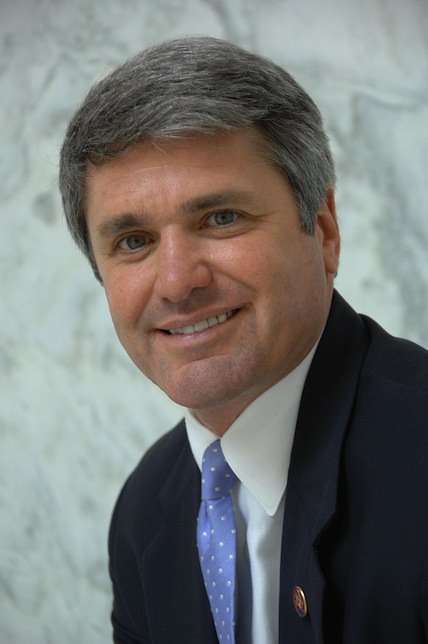Bill Would Create New Homeland Security Office for 'Countering Violent Extremism'
The legislation relies on dubious theories about "radicalization."

Remember when the Justice Department announced last year that it would be launching some pilot programs devoted to "countering violent extremism"? Now Rep. Michael McCaul wants to create a federal Office of Coordination for Countering Violent Extremism and house it at the Department of Homeland Security. Under the Texas Republican's Countering Violent Extremism Act, introduced late last week, the new bureau would be responsible for a range of activities, including "identifying risk factors that contribute to violent extremism in communities in the United States," "assessing the methods used by violent extremists to disseminate propaganda and messaging to communities at risk for radicalization and recruitment," and "establishing a counter-messaging program" to push back against extremist ideas. The office would receive $10 million a year for the next five years, and a new post—the "assistant secretary for countering violent extremism"—would be created to run it.
The bill is worded broadly enough to attract support both from liberals worried about domestic right-wing terror and from conservatives (such as McCaul) whose chief fear is jihad. That's because it rests on a belief that has taken hold in both parties: that fighting "radicalization" is a good way to root out terrorism. But this is a dubious idea, and many scholars have subjected it to withering criticisms. Most radicals do not become terrorists, and clumsy counterradicalization efforts may be as likely to push people toward terror tactics as to pull them away. (As the security analyst J.M. Berger once put it, "there's more than a little risk that efforts to re-program people who are early in the radicalization process could create more terrorists, not fewer.") Furthermore, empirical studies of actual radicals and terrorists, such as this paper from the British think tank Demos, do not show a neat path from ideas to violence. Nonviolent radicalism can be a stepping stone to terror tactics, but it can also discourage them; meanwhile, many factors that help draw people into terrorism don't have much to do with ideology at all.
The McCaul bill includes a pro forma requirement that "all activities related to countering violent extremism fully respect the privacy, civil rights, and civil liberties of all Americans," but not everyone finds that language reassuring. "That's scant protection when the clear purpose of a CVE [countering violent extremism] program is to focus on what it deems 'extreme' beliefs," says Michael German, a former FBI agent, now based at the Brennan Center for Justice, who has written frequently about the problems with this approach to counterterrorism. German is also unmoved by the bill's requirement that an annual report to Congress evaluate how successful the office's efforts have been. Given how many projects along these lines have already been tried around the world, German suggests that the government "investigate those programs before we invest this money and create this infrastructure." After all, he asks, "once this infrastructure is created, how easy will it be to take it down?"


Show Comments (165)